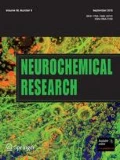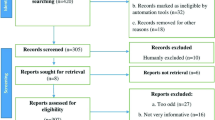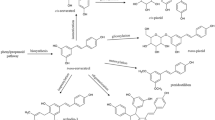Abstract
Cognitive decline is among the most devastating age-related conditions and is rapidly becoming an important cause of disease burdens worldwide. New strategies for the prevention and management of cognitive decline are needed. Resveratrol, a polyphenolic compound, has been found to enhance brain health through multiple signaling pathways. Optimal SIRT1 activation is the most crucial step in the neuroprotection provided by resveratrol against cognitive impairment. This review discusses several recent developments in our understanding of the mechanisms by which resveratrol delay age-related cognitive decline through SIRT1. The regulatory mechanisms include anti-oxidative, anti-inflammatory, anti-apoptotic processes and autophagy regulation, as well as increases in cerebral blood flow and improvements in the plasticity of synaptic pathways. Resveratrol, as well as novel SIRT1 activators, is likely to provide promising therapeutic strategies for impeding cognitive decline, repairing brain functions, and supporting healthy aging.




Similar content being viewed by others
References
Abdel-Wahab BA, Abdel-Wahab MM (2016) Protective effect of resveratrol against chronic intermittent hypoxia-induced spatial memory deficits, hippocampal oxidative DNA damage and increased p47Phox NADPH oxidase expression in young rats. Behav Brain Res 305:65–75
Anastacio JR, Netto CA, Castro CC, Sanches EF, Ferreira DC, Noschang C, Krolow R, Dalmaz C, Pagnussat A (2014) Resveratrol treatment has neuroprotective effects and prevents cognitive impairment after chronic cerebral hypoperfusion. Neurol Res 36(7):627–633
Sun AY, Wang Q, Simonyi A, Sun GY (2010) Resveratrol as a therapeutic agent for neurodegenerative diseases. Mol Neurobiol 41(2–3):375–383
Tian Z, Wang J, Xu M, Wang Y, Zhang M, Zhou Y (2016) Resveratrol improves cognitive impairment by regulating apoptosis and synaptic plasticity in streptozotocin-induced diabetic rats. Cell Physiol Biochem 40(6):1670–1677
Howes MJ, Perry E (2011) The role of phytochemicals in the treatment and prevention of dementia. Drugs Aging 28(6):439–468
Mazzanti G, Di Giacomo S (2016) Curcumin and resveratrol in the management of cognitive disorders: what is the clinical evidence? Molecules 21(9):1243. https://doi.org/10.3390/molecules21091243
Wang R, Zhang Y, Li J, Zhang C (2017) Resveratrol ameliorates spatial learning memory impairment induced by Abeta1-42 in rats. Neuroscience 344:39–47
Borra MT, Smith BC, Denu JM (2005) Mechanism of human SIRT1 activation by resveratrol. J Biol Chem 280(17):17187–17195
Sun AY, Wang Q, Simonyi A, Sun GY (2008) Botanical phenolics and brain health. Neuromol Med 10(4):259–274
Demoulin B, Hermant M, Castrogiovanni C, Staudt C, Dumont P (2015) Resveratrol induces DNA damage in colon cancer cells by poisoning topoisomerase II and activates the ATM kinase to trigger p53-dependent apoptosis. Toxicol In Vitro 29(5):1156–1165
Li XM, Zhou MT, Wang XM, Ji MH, Zhou ZQ, Yang JJ (2014) Resveratrol pretreatment attenuates the isoflurane-induced cognitive impairment through its anti-inflammation and -apoptosis actions in aged mice. J Mol Neurosci 52(2):286–293
Liu GS, Zhang ZS, Yang B, He W (2012) Resveratrol attenuates oxidative damage and ameliorates cognitive impairment in the brain of senescence-accelerated mice. Life Sci 91(17–18):872–877
Xue YQ, Di JM, Luo Y, Cheng KJ, Wei X, Shi Z (2014) Resveratrol oligomers for the prevention and treatment of cancers. Oxid Med Cell Longev 2014:765832
Lee J, Torosyan N, Silverman DH (2017) Examining the impact of grape consumption on brain metabolism and cognitive function in patients with mild decline in cognition: a double-blinded placebo controlled pilot study. Exp Gerontol 87(Pt A):121–128
Porquet D, Casadesus G, Bayod S, Vicente A, Canudas AM, Vilaplana J, Pelegri C, Sanfeliu C, Camins A, Pallas M, del Valle J (2013) Dietary resveratrol prevents Alzheimer’s markers and increases life span in SAMP8. Age (Dordr) 35(5):1851–1865
Evans HM, Howe PR, Wong RH (2017) Effects of resveratrol on cognitive performance, mood and cerebrovascular function in post-menopausal women; a 14-week randomised placebo-controlled intervention trial. Nutrients 9(1):27. https://doi.org/10.3390/nu9010027
Sonmez U, Sonmez A, Erbil G, Tekmen I, Baykara B (2007) Neuroprotective effects of resveratrol against traumatic brain injury in immature rats. Neurosci Lett 420(2):133–137
Pineda-Ramirez N, Gutierrez Aguilar GF, Espinoza-Rojo M, Aguilera P (2018) Current evidence for AMPK activation involvement on resveratrol-induced neuroprotection in cerebral ischemia. Nutr Neurosci 21(4):229–247
Abdel-Aleem GA, Khaleel EF, Mostafa DG, Elberier LK (2016) Neuroprotective effect of resveratrol against brain ischemia reperfusion injury in rats entails reduction of DJ-1 protein expression and activation of PI3K/Akt/GSK3b survival pathway. Arch Physiol Biochem 122(4):200–213
Saleh MC, Connell BJ, Saleh TM (2013) Resveratrol induced neuroprotection is mediated via both estrogen receptor subtypes, ER(alpha) and ER(beta). Neurosci Lett 548:217–221
Li Z, Fang F, Wang Y, Wang L (2016) Resveratrol protects CA1 neurons against focal cerebral ischemic reperfusion-induced damage via the ERK-CREB signaling pathway in rats. Pharmacol Biochem Behav 146–147:21–27
Shimada A, Hasegawa-Ishii S (2011) Senescence-accelerated mice (SAMs) as a model for brain aging and immunosenescence. Aging Dis 2(5):414–435
Michan S, Li Y, Chou MM, Parrella E, Ge H, Long JM, Allard JS, Lewis K, Miller M, Xu W, Mervis RF, Chen J, Guerin KI, Smith LE, McBurney MW, Sinclair DA, Baudry M, de Cabo R, Longo VD (2010) SIRT1 is essential for normal cognitive function and synaptic plasticity. J Neurosci 30 (29):9695–9707
Kelly GS (2010) A review of the sirtuin system, its clinical implications, and the potential role of dietary activators like resveratrol: part 2. Altern Med Rev 15(4):313–328
Voelter-Mahlknecht S, Mahlknecht U (2006) Cloning, chromosomal characterization and mapping of the NAD-dependent histone deacetylases gene sirtuin 1. Int J Mol Med 17(1):59–67
Kaeberlein M, McVey M, Guarente L (1999) The SIR2/3/4 complex and SIR2 alone promote longevity in Saccharomyces cerevisiae by two different mechanisms. Genes Dev 13(19):2570–2580
Howitz KT, Bitterman KJ, Cohen HY, Lamming DW, Lavu S, Wood JG, Zipkin RE, Chung P, Kisielewski A, Zhang LL, Scherer B, Sinclair DA (2003) Small molecule activators of sirtuins extend Saccharomyces cerevisiae lifespan. Nature 425(6954):191–196
Ng F, Wijaya L, Tang BL (2015) SIRT1 in the brain-connections with aging-associated disorders and lifespan. Front Cell Neurosci 9:64
Picard F, Kurtev M, Chung N, Topark-Ngarm A, Senawong T, Machado De Oliveira R, Leid M, McBurney MW, Guarente L (2004) Sirt1 promotes fat mobilization in white adipocytes by repressing PPAR-gamma. Nature 429(6993):771–776
Braidy N, Jayasena T, Poljak A, Sachdev PS (2012) Sirtuins in cognitive ageing and Alzheimer’s disease. Curr Opin Psychiatry 25(3):226–230
Cao Y, Jiang X, Ma H, Wang Y, Xue P, Liu Y (2015) SIRT1 and insulin resistance. J Diabetes Complicat 30(1):178–183
Ramadori G, Lee CE, Bookout AL, Lee S, Williams KW, Anderson J, Elmquist JK, Coppari R (2008) Brain SIRT1: anatomical distribution and regulation by energy availability. J Neurosci 28(40):9989–9996
Chen J, Zhou Y, Mueller-Steiner S, Chen LF, Kwon H, Yi S, Mucke L, Gan L (2005) SIRT1 protects against microglia-dependent amyloid-beta toxicity through inhibiting NF-kappaB signaling. J Biol Chem 280(48):40364–40374
Hubbard BP, Sinclair DA (2014) Small molecule SIRT1 activators for the treatment of aging and age-related diseases. Trends Pharmacol Sci 35(3):146–154
Cao D, Wang M, Qiu X, Liu D, Jiang H, Yang N, Xu RM (2015) Structural basis for allosteric, substrate-dependent stimulation of SIRT1 activity by resveratrol. Genes Dev 29(12):1316–1325
Du LL, Xie JZ, Cheng XS, Li XH, Kong FL, Jiang X, Ma ZW, Wang JZ, Chen C, Zhou XW (2014) Activation of sirtuin 1 attenuates cerebral ventricular streptozotocin-induced tau hyperphosphorylation and cognitive injuries in rat hippocampi. Age (Dordr) 36(2):613–623
Zhang L, Tu R, Wang Y, Hu Y, Li X, Cheng X, Yin Y, Li W, Huang H (2017) Early-life exposure to lead induces cognitive impairment in elder mice targeting SIRT1 phosphorylation and oxidative alterations. Front Physiol 8:446
Zhao YN, Li WF, Li F, Zhang Z, Dai YD, Xu AL, Qi C, Gao JM, Gao J (2013) Resveratrol improves learning and memory in normally aged mice through microRNA-CREB pathway. Biochem Biophys Res Commun 435(4):597–602
St-Pierre J, Drori S, Uldry M, Silvaggi JM, Rhee J, Jager S, Handschin C, Zheng K, Lin J, Yang W, Simon DK, Bachoo R, Spiegelman BM (2006) Suppression of reactive oxygen species and neurodegeneration by the PGC-1 transcriptional coactivators. Cell 127(2):397–408
Valle I, Alvarez-Barrientos A, Arza E, Lamas S, Monsalve M (2005) PGC-1alpha regulates the mitochondrial antioxidant defense system in vascular endothelial cells. Cardiovasc Res 66(3):562–573
Meng Z, Li J, Zhao H, Liu H, Zhang G, Wang L, Hu HE, Li DI, Liu M, Bi F, Wang X, Tian G, Liu Q, Buren B (2015) Resveratrol relieves ischemia-induced oxidative stress in the hippocampus by activating SIRT1. Exp Ther Med 10(2):525–530
Li J, Feng L, Xing Y, Wang Y, Du L, Xu C, Cao J, Wang Q, Fan S, Liu Q, Fan F (2014) Radioprotective and antioxidant effect of resveratrol in hippocampus by activating Sirt1. Int J Mol Sci 15(4):5928–5939
Li L, Sun Q, Li Y, Yang Y, Yang Y, Chang T, Man M, Zheng L (2015) Overexpression of SIRT1 induced by resveratrol and inhibitor of miR-204 suppresses activation and proliferation of microglia. J Mol Neurosci 56(4):858–867
Biscaro B, Lindvall O, Tesco G, Ekdahl CT, Nitsch RM (2012) Inhibition of microglial activation protects hippocampal neurogenesis and improves cognitive deficits in a transgenic mouse model for Alzheimer’s disease. Neurodegener Dis 9(4):187–198
Skaper SD, Facci L, Giusti P (2014) Neuroinflammation, microglia and mast cells in the pathophysiology of neurocognitive disorders: a review. CNS Neurol Disord Drug Targets 13(10):1654–1666
Paolicelli RC, Bolasco G, Pagani F, Maggi L, Scianni M, Panzanelli P, Giustetto M, Ferreira TA, Guiducci E, Dumas L, Ragozzino D, Gross CT (2011) Synaptic pruning by microglia is necessary for normal brain development. Science 333(6048):1456–1458
Hattori Y, Okamoto Y, Maki T, Yamamoto Y, Oishi N, Yamahara K, Nagatsuka K, Takahashi R, Kalaria RN, Fukuyama H, Kinoshita M, Ihara M (2014) Silent information regulator 2 homolog 1 counters cerebral hypoperfusion injury by deacetylating endothelial nitric oxide synthase. Stroke 45(11):3403–3411
Ota H, Eto M, Ogawa S, Iijima K, Akishita M, Ouchi Y (2010) SIRT1/eNOS axis as a potential target against vascular senescence, dysfunction and atherosclerosis. J Atheroscler Thromb 17(5):431–435
Goodwin BL, Solomonson LP, Eichler DC (2004) Argininosuccinate synthase expression is required to maintain nitric oxide production and cell viability in aortic endothelial cells. J Biol Chem 279(18):18353–18360
Leal G, Afonso PM, Salazar IL, Duarte CB (2014) Regulation of hippocampal synaptic plasticity by BDNF. Brain Res 1621:82–101
Dias GP, Cocks G, do Nascimento Bevilaqua MC, Nardi AE, Thuret S (2016) Resveratrol: a potential hippocampal plasticity enhancer. Oxid Med Cell Longev 2016:9651236
Tao X, Finkbeiner S, Arnold DB, Shaywitz AJ, Greenberg ME (1998) Ca2+ influx regulates BDNF transcription by a CREB family transcription factor-dependent mechanism. Neuron 20(4):709–726
Feng Y, Cui Y, Gao JL, Li R, Jiang XH, Tian YX, Wang KJ, Li MH, Zhang HA, Cui JZ (2016) Neuroprotective effects of resveratrol against traumatic brain injury in rats: involvement of synaptic proteins and neuronal autophagy. Mol Med Rep 13(6):5248–5254
Lin CJ, Chen TH, Yang LY, Shih CM (2014) Resveratrol protects astrocytes against traumatic brain injury through inhibiting apoptotic and autophagic cell death. Cell Death Dis 5:e1147
Wang H, Jiang T, Li W, Gao N, Zhang T (2018) Resveratrol attenuates oxidative damage through activating mitophagy in an in vitro model of Alzheimer’s disease. Toxicol Lett 282:100–108
He Q, Li Z, Wang Y, Hou Y, Li L, Zhao J (2017) Resveratrol alleviates cerebral ischemia/reperfusion injury in rats by inhibiting NLRP3 inflammasome activation through Sirt1-dependent autophagy induction. Int Immunopharmacol 50:208–215
Wu Y, Li X, Zhu JX, Xie W, Le W, Fan Z, Jankovic J, Pan T (2011) Resveratrol-activated AMPK/SIRT1/autophagy in cellular models of Parkinson’s disease. Neurosignals 19(3):163–174
Das S, Mitrovsky G, Vasanthi HR, Das DK (2014) Antiaging properties of a grape-derived antioxidant are regulated by mitochondrial balance of fusion and fission leading to mitophagy triggered by a signaling network of Sirt1-Sirt3-Foxo3-PINK1-PARKIN. Oxid Med Cell Longev 2014:345105
Li YR, Li S, Lin CC (2017) Effect of resveratrol and pterostilbene on aging and longevity. Biofactors 44(1):69–82
Marchal J, Blanc S, Epelbaum J, Aujard F, Pifferi F (2012) Effects of chronic calorie restriction or dietary resveratrol supplementation on insulin sensitivity markers in a primate, Microcebus murinus. PLoS ONE 7(3):e34289
Testa G, Biasi F, Poli G, Chiarpotto E (2014) Calorie restriction and dietary restriction mimetics: a strategy for improving healthy aging and longevity. Curr Pharm Des 20(18):2950–2977
Ai Z, Li C, Li L, He G (2015) Resveratrol inhibits beta-amyloid-induced neuronal apoptosis via regulation of p53 acetylation in PC12 cells. Mol Med Rep 11(4):2429–2434
Author information
Authors and Affiliations
Corresponding author
Ethics declarations
Conflict of interest
The authors declare that they have no conflicts of interest.
Rights and permissions
About this article
Cite this article
Cao, W., Dou, Y. & Li, A. Resveratrol Boosts Cognitive Function by Targeting SIRT1. Neurochem Res 43, 1705–1713 (2018). https://doi.org/10.1007/s11064-018-2586-8
Received:
Revised:
Accepted:
Published:
Issue Date:
DOI: https://doi.org/10.1007/s11064-018-2586-8




